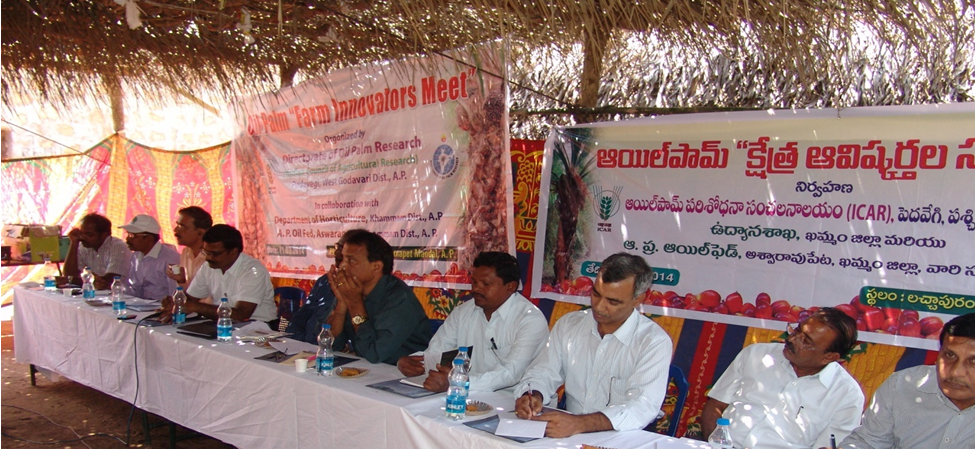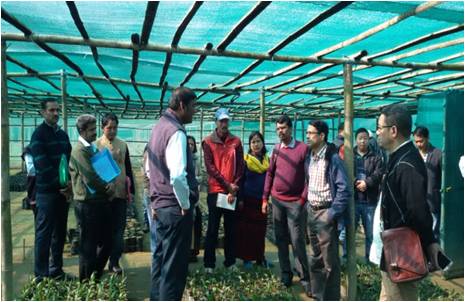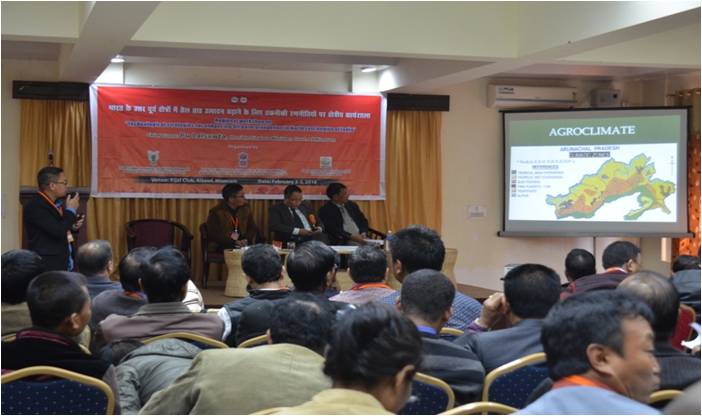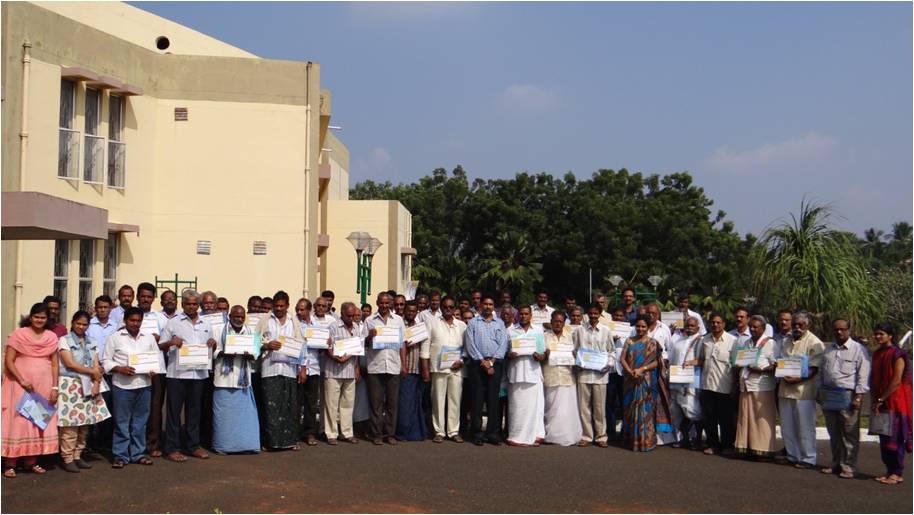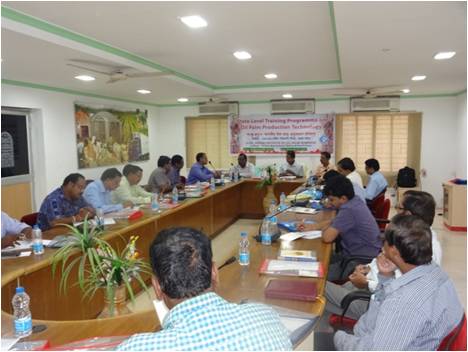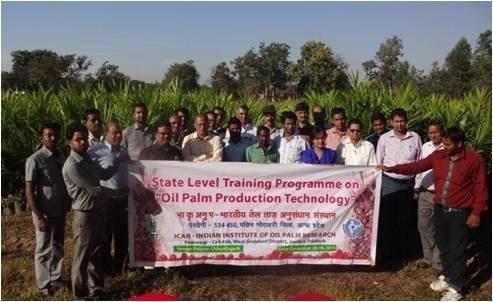
Research Achievements
Intensive evaluation of African germplasm resulted in the identification of a few remarkably high yielding accessions that could play a major role in oil palm crop improvement programme in India. Explant samples were collected for tissue culture of these valuable palms.
Four dura palms, belonging to Guinea Bissau and Zambia, with drought tolerance have been selected and are being utilized in development of DxD and DxP crosses.
Eight promising dura mother palms were selected from commercial plantations of Maharastra and Andhra Pradesh and 11 germplasm were collected from Little Andaman plantations. In total, 19 oil palm germplasm accessions were characterized and conserved.
Among DxD crosses, highest oil/bunch ratio was recorded in dura palm no.49 in 240D x 281D cross (24.5%) followed by dura palm no.6(23.9%). Eight palms in 240D x 281D and 14 in 80D x 281D crossed recorded oil to bunch ratio of more than 20%
In case of DxP crosses, highest per cent oil/bunch ratio was recorded in tenera hybrid 53D x 57D ( 25.64 %) closely followed by 124D x 57P (25.4 %) which was significantly higher than Deli x Nigeria (23.37 %) and Deli x Ghana (17.9 %) hybrids.
Eight DxD hybrids were produced and supplied to Agricultural Research Station, Pattukottai, Tamil Nadu. Eleven new oil palm hybrids namely DOPR 41 to DOPR 51 were supplied to Agricultural Research Station, Vijayarai, Andhra Pradesh of AICRP on Palms for evaluation.
Somatic embryogenesis from spear leaf explants of mature pisifera was observed for the first time in India.
Oil palm seeds can be stored at constant room temperature of 23℃ for 60 days without losing viability and vigour.
Protocol for cyro storage of oil palm pollen and zygotic embryo standardized.
Marker for shell thickness.
- Training Programming on "Oil Palm Production Technology" Read more...
- Oil Palm Short Videos :
- Oil Palm Disease Management
- Oil Palm Fertilizer Management
- Oil Palm Green manure and cover crops
- Oil Palm Intercrops
- Oil Palm Irrigation Management
- Oil Palm Mulching
- Oil Palm Nutrient Deficiencies
- Oil Palm Pest Management
- Oil Palm Mobile Apps :
- Oil Palm Crop Doctor
- Oil Palm Crop Doctor Kannada
- Oil Palm Water Requirement- Andhra Pradesh
- Oil Palm Water Requirement - Karnataka
- Oil Palm Water Requirement - TamilNadu
- Oil Palm Site Suitability
- Oil Palm Nutrient Advisor
- Oil Palm Cultivation Practices
- ఆయిల్ పామ్ సాగు
- तेल ताड़ की खेती
- Oil Palm Nutrient Management
- ఆయిల్ పామ్ లో పోషక పదార్ధాల లోపాలు - యాజమాన్యం
- तेल ताड़ पोषण सम्बन्धी विकारों , पीड़कों और बीमारियों का प्रबन्धन
- Oil Palm Pest Management
- ఆయిల్ పామ్ లో పురుగుల యాజమాన్యం
- तेल ताड़ की पीड़क प्रबन्धन
- Oil Palm Disease Management
- ఆయిల్ పామ్ లో తెగుళ్ళ యాజమాన్యం
- तेल ताड़ की बीमारियां और उनका प्रबंध

